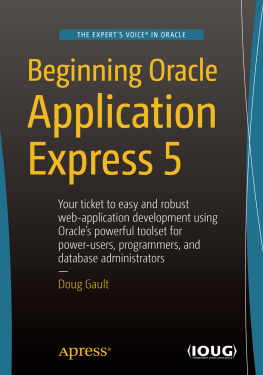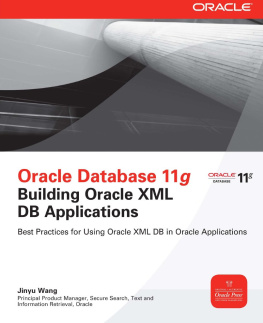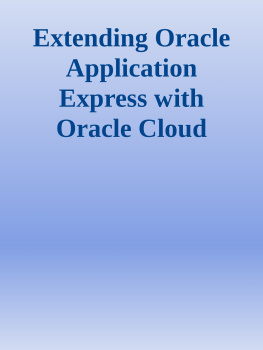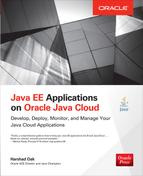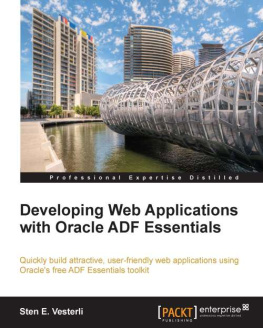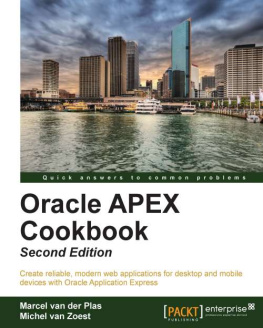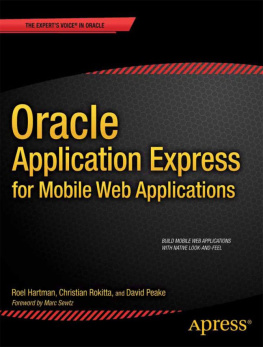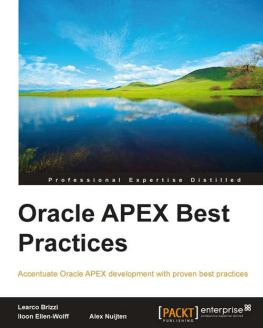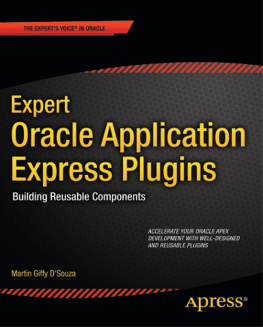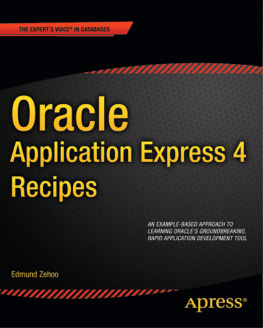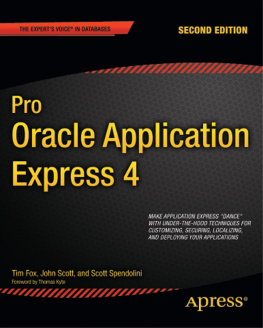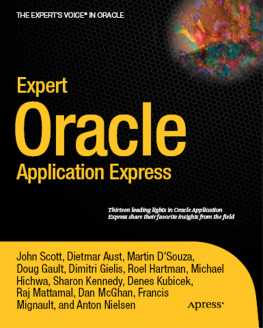APEX has been around for quite some timeperhaps even longer than most people know. The first public release of APEX, or HTML DB, as it was called then, came in 2004, but its history reaches back a long way.
Ancient History
APEX has its roots in technology that has been around for quite a while. In fact, parts of the PL/SQL Web Toolkit, which is used under the covers by APEX to generate the HTML that is sent to the browser, date back to as early as 1994.
At that point in time, you could actually write web applications in PL/SQL by hand, and unfortunately many of us did. This required not only a thorough knowledge of PL/SQL and HTML, but also the patience of a saint and the determination of a headstrong mule. The end result wasnt very pretty, and it was definitely not secure by todays terms, but it was functional, if somewhat limited.
Not long after, Oracle introduced PL/SQL Server Pages (PSPs). This involved first coding the static HTML and including special Oracle markup to indicate where dynamic data would go. Once you had the output looking as you wanted, you then ran it through a program called LOADPSP . This would translate the raw HTML and the special Oracle markup into a PL/SQL procedure that, again, used the PL/SQL Web Toolkit to emit the HTML, including the dynamic data you requested. At the time, this was a huge leap forward. I worked at a company where I built an entire framework using PSP technology and deployed it at several clients.
Finally, in 1997, WebDB came on the scene. The true grandfather of what is now called APEX, WebDB was revolutionary in that it was a 100% web-based tool that allowed developers to design web applications. It was written entirely in PL/SQL, even though Java seemed to be taking over the world. Developers could point WebDB at their database and generate code that would produce forms, reports, charts, and calendars. There was no session-state management, and there were no templates; once the code was generated, you couldnt go back through the tool.
WebDB allowed a large number of companies that wanted to jump on the web-based bandwagon to do so without spending vast amounts of time and effort retraining their staff. As a tribute to its success, I know of a number of companies that still have WebDB systems running in production environments.
Unfortunately, WebDBs days were numbered. Because it generated code (and if you didnt like the code it generated, then too bad for you), it had already begun to fade from favor by the time it was absorbed into Oracles Portal product. However, creator Mike Hichwa didnt forget the glimpse of greatness that WebDB had seen.
More Recent History
Around 1999, Oracle CEO Larry Ellison presented Mike Hichwa (VP of Software Development) with the task of creating an internal calendaring and scheduling system for Oracle Corp. The original remit was to use WebDB to generate the initial code and then hand-code all the changes from that point forward. Mike, however, saw this as an opportunity to completely rewrite WebDB into something that could be far more useful. Thus, with the help of Joel Kallman and Tom Kyte, Oracle Flows was born.
Based on the success of the internal calendaring and scheduling system, the team was allowed to move forward toward making Oracle Flows a product. In 2001, using what was then known as Flow Builder, Mike and his team began implementing systems for various customers, including one situation where they managed to replace a Java development project that was going horribly wrong.
By 2003, the team had proven the tools power, and they were given permission to release it as a product. HTML DB 1.5 was released to the public as a no-cost option of Oracle 10gR1.
Since then, various releases have been introduced, each providing improved features and functionality. The following is a very brief list of the releases and some of the more notable features:
HTML DB 1.6 (2004) introduced themes, master-detail forms, page groups, page locking, and some multilingual capabilities.

